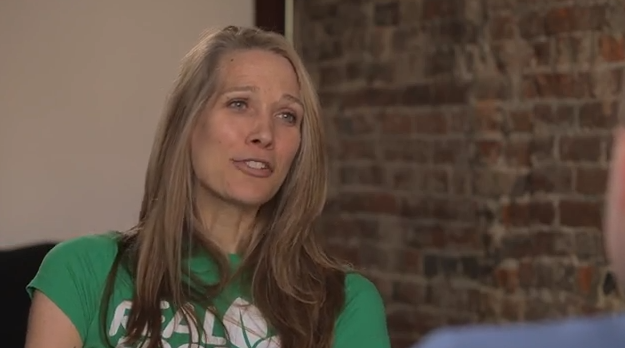After selling anti-spam software company TurnTide to Symantec in 2004 for $28 million, friends in Silicon Valley would ask cofounder Lucinda Duncalfe what her next venture would be. In Philadelphia, her friends would ask her: why are you even doing something else?
That difference in mentality is at the heart of what has changed in the last decade in non-traditional technology markets across the country, including Philadelphia, says Duncalfe, who is now busy establishing a model for Real Food Works, a healthy food at-home delivery service.
Nationally, we have come to better understand entrepreneurship and a recession has pushed us to celebrate it. So much so that she has a rule before agreeing to mentor a young entrepreneur: she has to be focusing full-time on the effort, no day job.
Technical.ly Philly recently had a conversation with Duncalfe to talk about her startup, which recently moved from Conshohocken to Chinatown, helped by Startup PHL funding.
Why build a business in Philadelphia?
Look at the four big tent-poles to growing a company, she said, and Philadelphia has all of them, giving it the ability to compete with other big markets:
- Talent — What second tier markets lack in the quantity of talent, they make up for by having to compete less for what talent exists and often getting people who are “more committed and willing to stay,” not jumping from one startup to another.
- Money — Like talent, there may be less early-stage capital, but money finds good ideas and if you’re a stronger business in a smaller market, you can be its “darling.”
- Region — In Philadelphia’s case, the old strengths of proximity to other big East Coast markets, relative cheap cost of living and strong infrastructure, from a walkable city and expansive transit to well-liked suburban towns. It’s also a big market for potential customers.
- Community — Like most established second-tier markets, people are here for life, not for work, so they’re more likely to be supportive.
“There are more real businesses in places like this, not selling on eyeballs,” she said. Citing the bootstrapping movement, entrepreneurs “want to be cash-flow positive from the start.”
How would you build a technology market from the start?
- Incentivize early community to create support.
- Government-backed investment dollars can be a good “fire starter,” hoping to attract other money. You need the money and state-backed money can help.
- Find a way to tell the narrative to build the community you have and to spread the word more widely.
- Create density. In the 1980s, business leaders wanted to buy a new car. In the 1990s, they had events throughout the region creating silos, from the western suburbs to the northern to downtown. Today, Duncalfe said, you know where you host the event: “You host it in the city.”
“There’s a lot that happens when you bump into each other, and you’re going to bump into each other when you’re all closer to each other,” she said of density.
What needs to happen next?
- “The metric of success isn’t whether we’re equal to Silicon Valley,” she said, because we won’t be. The metric of success should be “can you build a company successfully here” Can you keep talent, do people want to invest here?
- To get to the next level, we need to grow another big technology company here.
- Big technology companies spin off talent and create business for other smaller startups.
Because there has been less investment here, there has been less competition for deals, so valuations have been lower and entrepreneurs have exited earlier so as not to get diluted. Instead, there needs to be a push to build another big company.
Join the conversation!
Find news, events, jobs and people who share your interests on Technical.ly's open community Slack

Philly daily roundup: Women's health startup wins pitch; $204M for internet access; 'GamingWalls' for sports venues

Philly daily roundup: East Market coworking; Temple's $2.5M engineering donation; WITS spring summit

Philly daily roundup: Jason Bannon leaves Ben Franklin; $26M for narcolepsy treatment; Philly Tech Calendar turns one


